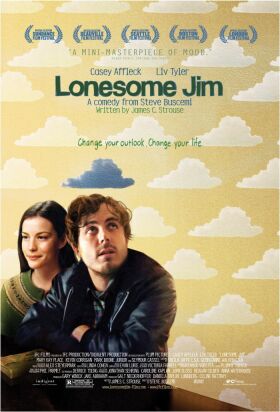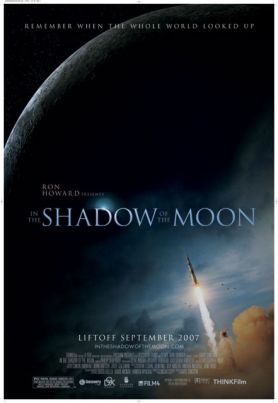Double Jeopardy
Double Jeopardy, directed by Bruce Beresford, is the latest example of
what is coming to be one of Hollywood’s favorite new genres: the female paranoia
movie. Like The Astronaut’s Wife of a few weeks ago, it deliberately sets
out to exploit the sort of insecurity that has become endemic, in some ways the
most destructive of the sexually transmitted diseases, since feminism, the
sexual revolution and no-fault divorce put an end to the old social safeguards
of female sexuality. Of course we know from experience that women are more
victimized by the casual, live-in relationships so easily taken on and shed and
adapted to male needs and desires, but it is once again marriage which is the
target here. For the point of these movies is not just to reassure them, in that
perverse way that paranoiacs need to be reassured, that their fears are
justified, but also to reassure them in a more straightforward way that things
are just as bad for those who are mothers, married and moneyed as for the most
vulnerable.
The story concerns the Parsons, Libby (Ashley Judd) and Nick (Bruce
Greenwood), who have what is apparently a perfect marriage. And—oh the
diabolical cleverness of it!—the film even wants us to believe that Nick
really does sincerely love Libby and their adorable son, Mattie. But when there
is a threat to the wealth that sustains their opulent life by a lake in
Washington State, Nick does not hesitate to recover his fortunes by ditching
Libby. This he does by staging his own death while the two of them are alone on
a yacht far out to sea. His story is that he took out a large insurance policy
on his own life with the idea that Libby and Mattie would be well-provided for
while he started a new life in a new place with a new name and a clean credit
rating. The trouble is that the insurance policy aroused suspicions that Libby,
the only other person on the boat after all, had killed him for the money, and
she is convicted of his murder.
One of the conventions that makes this kind of movie possible is that of
gender equivalence. There is an unwritten rule in Hollywood nowadays not only
that frowns on women in jeopardy being rescued by men but also that you must
never hint at the truth that everyone knows, namely that there are differences
in physical strength between women and men. Therefore, no one apparently even
raises an eyebrow at the idea that little Libby could have taken a kitchen knife
to big Nick, stabbed him so many times as to have left blood all over the boat,
but not sustained so much as a scratch herself. Nor does anyone apparently
consider the unlikelihood that a happily married woman with a child would want
to do such a thing even if the money was a certainty. Nor do Nick’s financial
difficulties make anyone smell a rat. She seems to be convicted with scarcely a
word said in her defense.
And then, also in the spirit of sexual equality, she goes to prison and
starts to buff up. The stage is set for the revenger’s comedy when the friend
(Annabeth Gish) to whom she entrusts the care of Mattie soon disappears with the
boy, and Libby learns by accident that she is living with the supposedly dead
Nick. How this can have come about—particularly as the film does not vouch
for a pre-existing relationship between the two, is left to our imaginations.
Nothing must be allowed to disturb the central conceit of a genuinely perfect
marriage which nevertheless conceals multiple masculine betrayals of the most
appalling kind. Men are natural liars, like Libby’s fat and unattractive lawyer
who blandly reassures her that “It will be all right, I promise.” Thus, too,
when Libby arrives in prison, her first two acquaintances there say: “Heard you
did your husband. He probably deserved it. Mine did.”
When life sends them lemons, these women make lemonade, and female prison for
them is a warm and supportive place without men. One of them (Roma Maffia), an
ex-lawyer, is soon a pal who believes in Libby’s innocence and informs her about
the double jeopardy clause of the Constitution, which is said to mean that,
since the man she supposedly killed is alive, “You can kill him. . .Kind of
makes you feel warm and tingly all over don’t it?” When I saw the film, the
audience laughed and cheered at this line, as they did when Libby, allowed out
on parole after six years (“Throw in some of that born-again Jesus stuff” her
friend advises her when she appears before the parole board), uses her
reputation as a hubbycide (“sliced and diced, that’s what they called it”) to
scare off a creep who tries to pick her up. There’s girl power for you!
But even paranoiacs can be romantics too, so there has to be a love interest
for poor wronged Libby. This is brought in in the improbable form of her parole
officer, Travis Lehman (Tommy Lee Jones) a former law professor with a secret
sorrow who first acts as a (remarkably incompetent) Inspector Javert when she
takes off after the errant Nick and later her accomplice in bringing Nick, now
known as Jonathan Devereaux, a hotel-owner in New Orleans, to book. Naturally
any hint of passion between the two of them is muted and left for future
development, since all the film’s energies are directed to the cathartic and
presumably empowering working out of the paranoiac’s revenge against the demons
of distrust that haunt modern marriages. Doubtless, once she is reunited with
the missing Mattie, Libby’s single-motherhood will be enlivened by occasional
trysts with Travis—so long as they don’t involve commitment.
Discover more from James Bowman
Subscribe to get the latest posts to your email.





